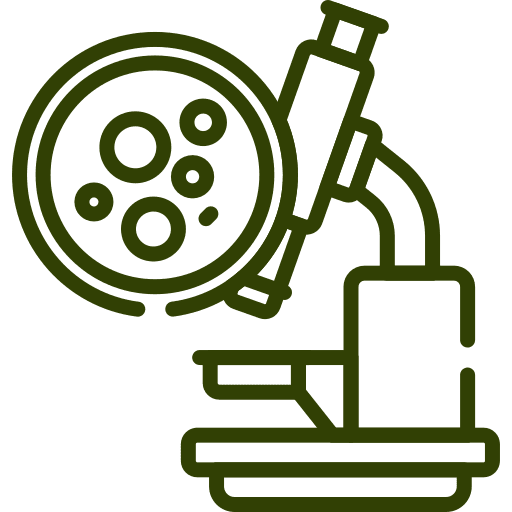Skin Cancer Clinic.
A trusted skin cancer clinic for surgical & non-surgical testing, diagnosis & treatment.
ENGADINE SKIN CANCER CLINIC
Engadine's #1 trusted skin clinic
Engadine skin clinic offers complete skin cancer solutions for all individuals. From skin cancer checks to treatments, our doctors have years of experience in identifying and successfully treating skin cancer patients.
Our medical practice is supported by dedicated staff, offering the highest quality services to ensure you’re 100% comfortable with all processes and procedures. Engadine skin clinic is committed to providing world class services for our patients and ensuring that we do the best to provide the correct advice & advanced technologies to assist.

Skin Cancer Check
We offer full body skin checks by qualified doctorsto identify any abnormalities or areas of concern early on in the process.

Skin Cancer Diagnosis
We diagnose any identified areas of concern utilising dermoscopy, digital imaging or pathological processes.

Skin Cancer Treatments
Skin Cancer Checks
Checking for skin cancer involves a thorough examination of every mole on your body. That includes the tips of your toes, behind your ears and under your arms.
Before your appointment, please remove any make-up, nail polish or fake tan as these can hide things we need to see.
Your appointment will start with a conversation about your overall health, family history and lifestyle. We’ll also ask you if there are any moles that you’re worried about. This information helps us assess your skin cancer risk.
Then we move to the skin cancer check itself. For this, we’ll ask you to remove your clothing apart from your underwear. That gives us the best chance to examine each mole and identify any that are suspicious.
Your doctor will examine each part of your skin with a dermatoscope (basically a small magnifying glass). This is a slow, careful examination. Your comfort and privacy are important to us so we don’t usually examine genitals or breasts unless you have a specific concern about those areas (if you do, please tell us).
Skin Cancer Diagnosis
Skin cancer is usually diagnosed through a skin check and a biopsy. Often, we’ll also take some images of the mole in question.
A biopsy involves removing some or all of a suspicious mole and sending it to the laboratory for testing. It may take a few days to get the results.
There are three main types of skin cancer:
- Basal cell carcinoma – a slow-growing cancer
- Squamous cell carcinoma – a cancer that grows quickly over weeks or months
- Melanoma – the most dangerous form of skin cancer.
It’s never easy to hear that you have cancer and it’s normal to experience a range of emotions as you adjust to the diagnosis and begin to contemplate treatment.
Skin Cancer Treatment
There are several different treatment options for skin cancer, depending on:
- The cancer itself – its type, stage and location
- Whether the cancer has spread to other areas of your body
- Your overall health, including any medications you take.
Treatment for skin cancer may involve:
- Removing the cancer through:
- Surgery
- Usually done under a local anaesthetic
- May also require removing some surrounding tissue
- Cryotherapy (freezing the skin cancer off using liquid nitrogen)
- Curettage (scraping if off)
- Cautery (burning it off)
- Surgery
- Radiotherapy
- Ointments.
Why choose us?
- Our experienced doctors have completed additional training in skin cancer detection and treatment
- We equip the latest in detection & treatment technologies
- We have trained staff offering pleasant care
Frequently asked questions
Skin cancer can take many different forms. Be on the lookout for:
- Moles that are:
- New
- Getting bigger
- Have developed a notched outline
- Have become rough, scaly or ulcerated
- Itch or tingle
- Bleed or weep
- Spots that:
- Have changed colour
- Are raised or have a lump
- Look different from others.
They say a picture conveys more than a thousand words, though. Take a look at these pictures of skin cancer.
Itchy skin happens for many reasons – insect bites, eczema or heat rash, to name just a few.
But itchy skin can sometimes be a sign of skin cancer too. So, when should you be concerned?
Please get a skin cancer check if you have itchy skin alongside other symptoms of skin cancer such as moles or spots that are growing, changing or have become painful.
There are three main types of skin cancer:
- Basal cell carcinoma – a slow-growing cancer
- Squamous cell carcinoma – a cancer that grows quickly over weeks or months
- Melanoma – the most dangerous form of skin cancer.
A skin check is a thorough examination of your skin by a trained healthcare professional to look for any signs of skin cancer or other skin conditions.
During a skin check, our healthcare professionals will examine your skin from head to toe, looking for any unusual moles, growths, or spots. They may also ask you about any symptoms or concerns you have regarding your skin.
The frequency of skin checks depends on your personal risk factors and medical history. It is generally recommended that individuals with a high risk of skin cancer have a skin check every 6-12 months, while those with a lower risk can have a skin check every 1-2 years.
If the healthcare professional finds something suspicious during your skin check, they may recommend a biopsy to further examine the affected area. Depending on the results of the biopsy, further treatment may be necessary.
